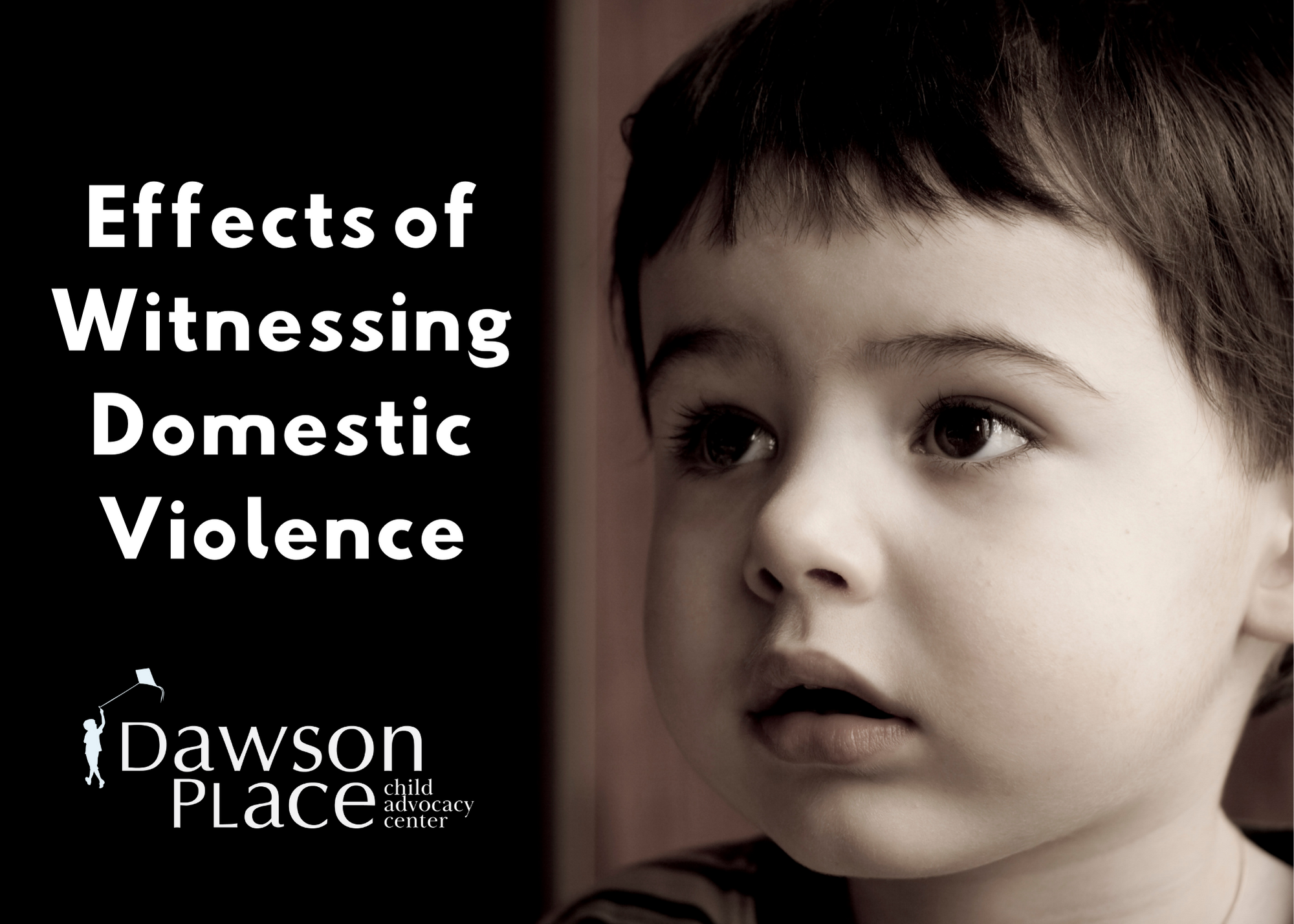
In a single year, more than 10 million women and men will experience abuse by an intimate partner. That is nearly 20 people per minute. Of these people 1 in 4 women and 1 in 9 men experience severe intimate partner physical violence, sexual violence, and/or stalking.
But how does this effect children?
In the short term, witnessing domestic violence of a caregiver can cause developmental delays, mental health concerns, and engagement in risky behaviors as they approach school-age and teen years. In the long term, we see a greater risk for repeating the cycle of entering abusive relationships or becoming abusers themselves as adults.
Short Term Effects of Domestic Violence:
Children preschool age and younger who have witnessed domestic violence may start to regress to doing things they used to do such as bedwetting or thumb sucking. They also may show signs of separation anxiety and difficulty sleeping.
As they enter school age, they may start to feel more guilty and even blame themselves for the abuse their parent is experiencing. In school, they may stop participating in activities they used to, lose friends, and get into trouble more often.
Teens who witness domestic violence will often start acting out and taking part in risky behaviors. They may fight with family and friends more, and be much more irritable. It is common for teens who have witnessed domestic violence to engage in risky behaviors like having unprotected sex and using alcohol or drugs.
Long Term Effects of Domestic Violence:
Children who witness domestic violence are far more likely to repeat the cycle of domestic violence as adults by entering abusive relationships or even becoming abusers themselves. Girls who grow up in homes where the father is abusive to the mother are more than six times as likely to be abused as a girl who grows up in a non-abusive home.
Along with the continued cycle of abuse they may face, there are also several health-related problems such as depression, anxiety, diabetes, obesity, and heart disease.
How you can help keep your children safe and end the cycle:
It is imperative to act if your children have witnessed domestic violence. Help them feel safe, talk to them about their fears, help them create boundaries and a reliable support system, and find professional help.
All parents and caretakers should take the time to talk to their children about healthy relationships. Talk about what a healthy relationship should look and feel like, start talking about consent in an age-appropriate manner, and identify traits of an unhealthy relationship. This will reduce the likelihood of your child entering an abusive relationship in their teen and adult years.
If your child has witnessed domestic violence and you need help, contact Dawson Place today.
Sources:
https://www.aafp.org/afp/2002/1201/p2052.html
